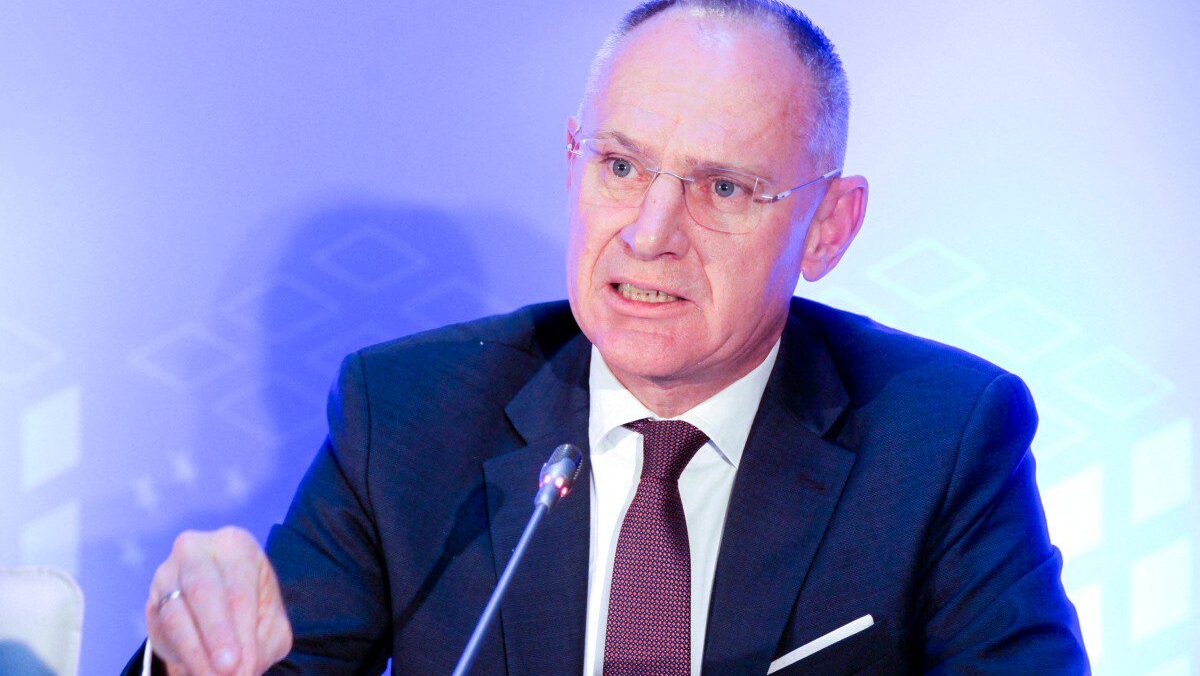
Austria’s Federal Minister of the Interior Gerhard Karner
Photo: Peter Kohalmi / AFP
A terrorist attack in Austria over the weekend, which claimed the life of a 14-year-old boy, has reignited the debate on immigration and its negative consequences in the country.
A 23-year-old Syrian man randomly selected and stabbed passers-by in the southern town of Villach on Saturday, February 15th. A 14-year-old boy was killed, and five people were wounded, three of whom are still in intensive care. The attacker was arrested and taken into custody.
Austrian authorities confirmed on Sunday that the perpetrator had sworn allegiance to the Islamic State (ISIS) terror group. He had been radicalised on the internet in a short space of time, and an ISIS flag was found in his apartment.
The last similar, jihadist attack in Austria was carried out in 2020, when a convicted ISIS sympathiser went on a shooting rampage in downtown Vienna, killing four.
However, there had been warning signs that it was only a matter of time before another attack would happen.
A 19-year-old man with North Macedonian roots had planned a suicide attack at a Taylor Swift concert in August in Vienna. He, too, had pledged allegiance to ISIS. A month later, an Austrian man of Bosnian extraction was shot dead by police before he was able to attack the Israeli consulate in Munich, Germany. He was religiously radicalised, and material was discovered in his home that suggested he had jihadist sentiments.
Neighbouring Germany has also had to deal with a series of attacks carried out by Afghans and Syrians over the past months, most recently the car ramming in Munich by a failed asylum seeker that claimed the lives of two people, and injured dozens more.
“No migrant would be able to commit murder or any other crime in our country if they were not in Austria in the first place,” Herbert Kickl, leader of the right-wing Freedom Party (FPÖ), Austria’s most popular party said after the attack in Villach.
Der nächste islamistische Anschlag. Die nächsten unschuldigen Opfer.
— Herbert Kickl (@herbert_kickl) February 16, 2025
Hauptsache die Systemparteien lehnen ein Verbotsgesetz gegen den politischen Islam und einen totalen Kurswechsel in der Asylpolitik ab,
Das sind die Gefährder Europas von Innen her, von denen JD Vance in…
The suspect was an asylum seeker with a valid residence permit who came to Austria in 2020. The interior ministry announced that his protection status would be withdrawn but stressed that he would not be deported back to Syria immediately, because he must serve his prison sentence first.
Herbert Kickl blamed both Austrian and EU regulations for the predicament Austria currently finds itself in, and emphasised that the country must put a stop to illegal migration at once. He also criticised Interior Minister Gerhard Karner for proposing the mass surveillance of online messaging services that would “pave the way to a police state.” “Why should Austria’s own citizens always suffer disadvantages when foreigners commit crimes?” Kickl asked.
The FPÖ won last year’s national elections by campaigning on tough asylum laws, including turning back illegal and undocumented migrants at the border. It is currently leading opinion polls with 35%, well above the second-placed Social Democrats who are at 22%.
An attempt to form a coalition government between the FPÖ and the centre-right People’s Party (ÖVP) failed last week due to differences on policy and the distribution of portfolios.
If the ÖVP does not succeed in forming an alliance with the Social Democrats and a third party (the Greens or the liberal NEOS)—and thus continue the pro-migration policies of the past—snap elections will be called in a few months’ time.
